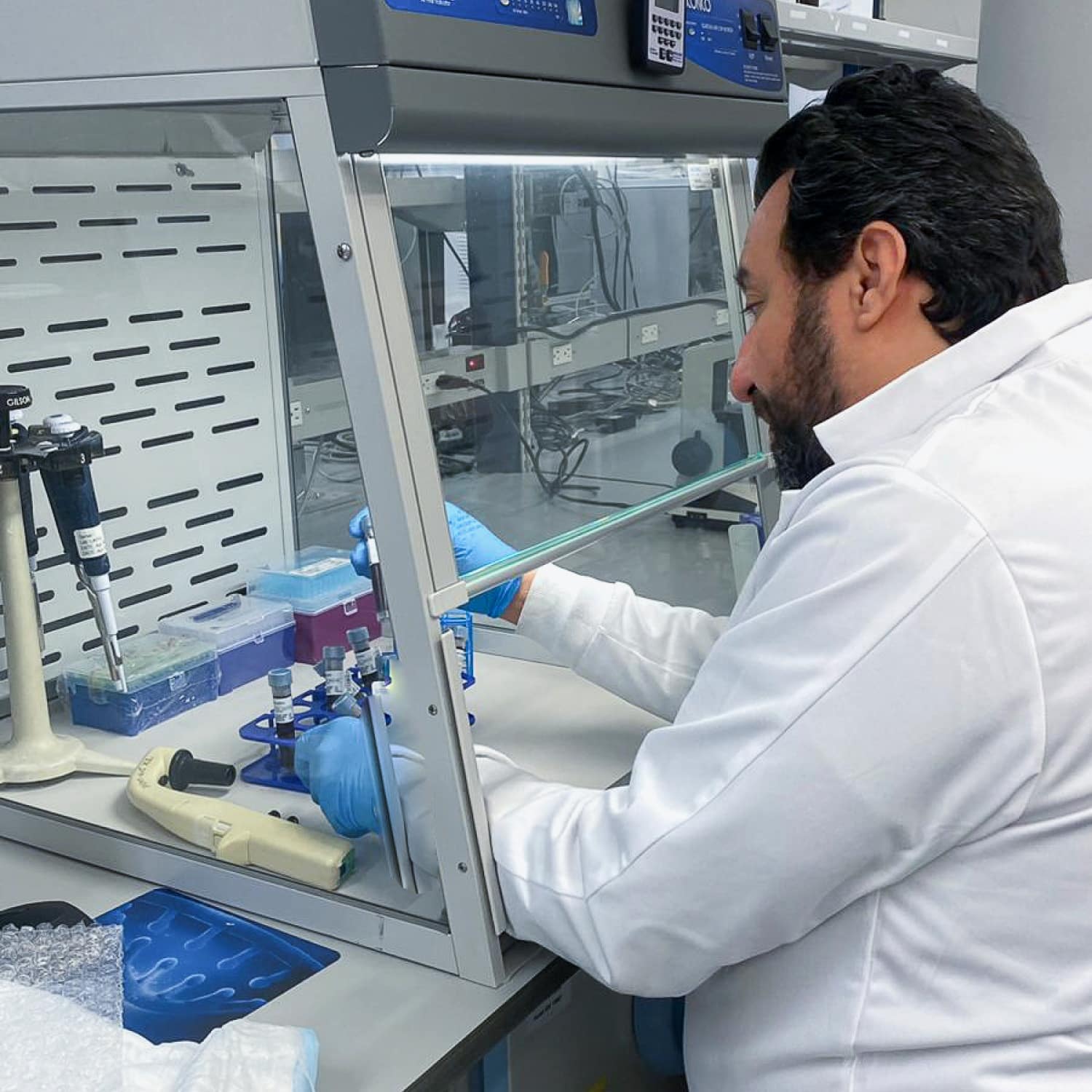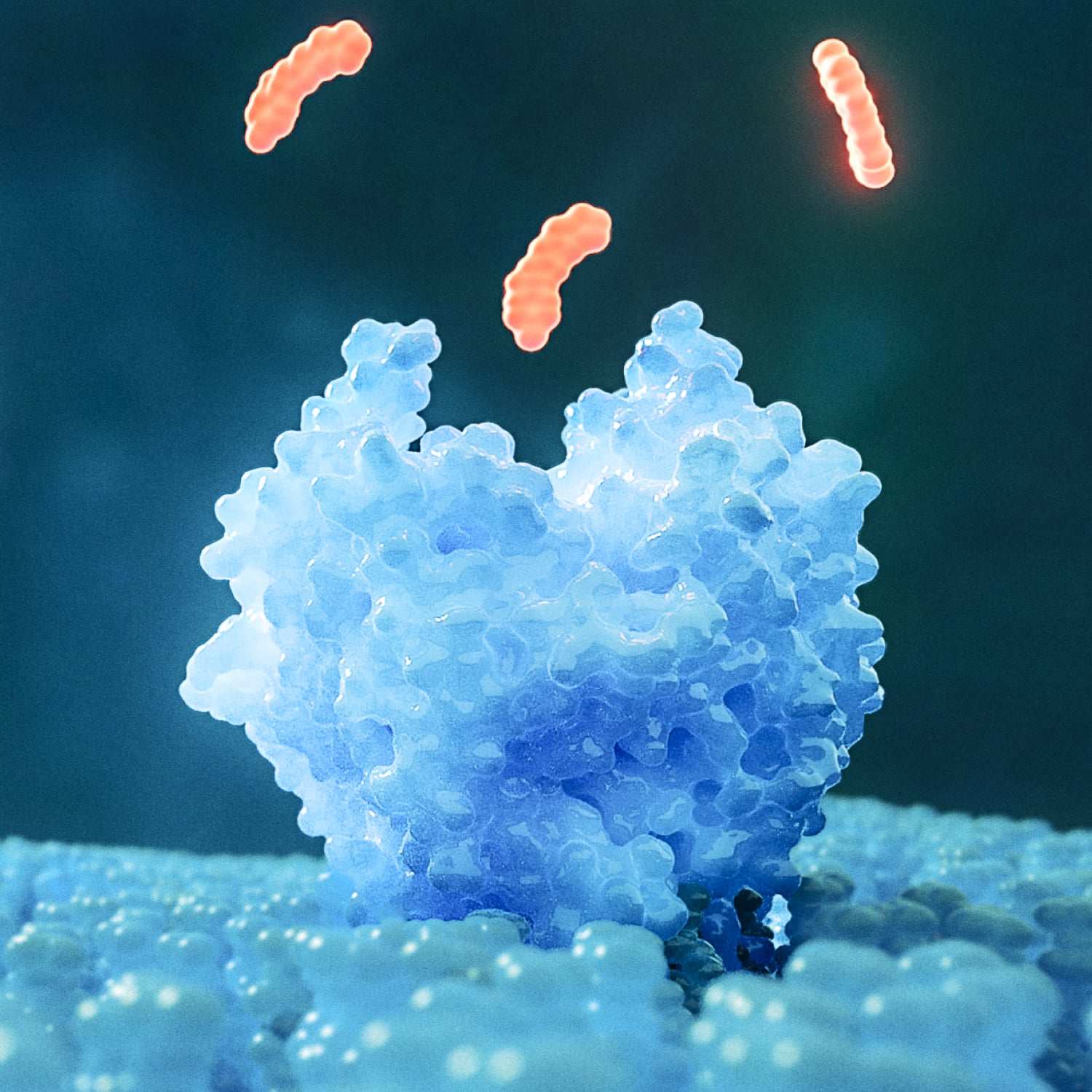About
Everything we do revolves around the immune system.
LAPIX is a clinical-stage biopharmaceutical company dedicated to pioneering innovative and first-in-class treatments for people diagnosed with autoimmune diseases. We take a patient-centric approach by developing novel, orally administered, immune tolerance restoration therapies that are non-immunosuppressive. We believe there is a better, gentler way for treating patients with autoimmune diseases.
Our pursuit of restoring the body’s natural immune tolerance pathway reflects our passion to transform lives through the development of progressive and patient-centric therapies for people suffering from autoimmune diseases with dysregulated Tregs such as Multiple Sclerosis, Rheumatoid Arthritis, Crohn’s Disease, Ulcerative Colitis, and many others.
Our antigen-agnostic immune tolerance restoration approach centered on developing TIM (T-cell immunoglobulin and mucin domain) agonists, combined with our in-depth knowledge of immunology and immune tolerance are the keys to propelling us forward and discovering new ways to restore immune balance.
LAPIX’s therapeutics are meticulously developed to offer safe, efficacious, and patient-focused solutions for addressing a broad spectrum of autoimmune conditions. Our vision is to transform how the medical field currently treats patients with immune-related diseases, and we are deeply committed to helping as many patients as possible.
Approach
We are unlocking the TIM pathway to explore new treatment options for autoimmune diseases.

By challenging the conventional treatment approach of immune system suppression, and shifting it to our novel, immune tolerance approach, we are discovering new possibilities for patients diagnosed with autoimmune diseases.
Our methodology for treating autoimmune disease through the TIM pathway relies on engaging the TIM receptors (TIM-3, TIM-4) with high-potency induction in an antigen-agnostic manner. This first-of-its-kind solution will replace existing treatments for autoimmune disease. Instead of suppressing the immune system, our therapies reestablish immune balance by restoring Treg and Breg populations to regulate pathogenic T cells.
TIM is exclusively expressed on immune cells and represents the body’s inherent tolerance pathway. Our unique and potent molecules activation of TIM restores immune equilibrium and reduces the harmful effects of renegade immune cells. Our therapies restore Tregs and Bregs (which are typically downregulated in autoimmune disease), while also downregulating pathogenic TH17 (which is typically upregulated by autoimmune disease).

TIM Pathway
The TIM (T-cell immunoglobulin and mucin domain) pathway is the linchpin in immune regulation and tolerance.

The TIM pathway is a complex network of interactions involving TIM family proteins. We believe that it is the starting point for identifying the root cause — and potential cure — of immune-related diseases. These proteins are vital to regulating immune tolerance, T cell responses, inflammation and various immune-related disorders.
The TIM pathway was discovered in the early 2000s and validated by vast research over the last 20 years, and we concentrate on the Tim family of receptors, specifically TIM-3 and TIM-4, because of their central and influential role in immune regulation. The body’s ability to effectively engage TIM is lost during chronic inflammation and can lead to loss of tolerance. The end result can be the development or exacerbation of autoimmune diseases, causing the immune system to mistakenly attack and damage itself.
Our therapeutics are orders of magnitude more potent than TIM’s endogenous ligands and can effectively engage and activate TIM, even under inflammatory conditions. Our data shows that by activating TIM-3 and TIM-4 receptors to restore immune balance, we can treat autoimmune diseases without impacting the immune system’s other functionality, and without inducing neutropenia and lymphocytopenia.
Pipeline
From discovery to clinic, we are advancing a robust pipeline while relentlessly driving forward early-stage initiatives.
News
Check out the latest news from LAPIX.
Contact
We aspire to transform how medical communities treat and support patients with serious and complex immune diseases.
"*" indicates required fields